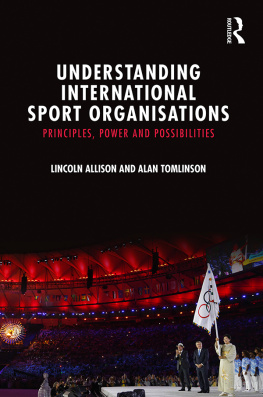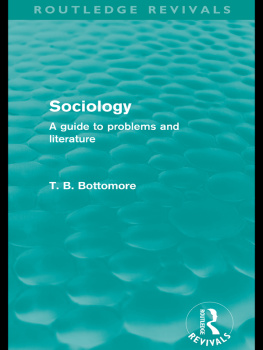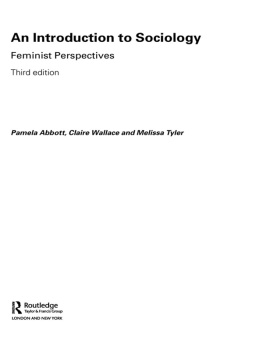
Sport A Critical Sociology
Second Edition
Richard Giulianotti
polity
Copyright Richard Giulianotti 2016
The right of Richard Giulianotti to be identified as Author of this Work has been asserted in accordance with the UK Copyright, Designs and Patents Act 1988.
First edition published in 2005 by Polity Press
This second edition first published in 2016 by Polity Press
Polity Press
65 Bridge Street
Cambridge CB2 1UR, UK
Polity Press
350 Main Street
Malden, MA 02148, USA
All rights reserved. Except for the quotation of short passages for the purpose of criticism and review, no part of this publication may be reproduced, stored in a retrieval system, or transmitted, in any form or by any means, electronic, mechanical, photocopying, recording or otherwise, without the prior permission of the publisher.
ISBN-13: 978-1-5095-0196-0
A catalogue record for this book is available from the British Library.
Library of Congress Cataloging-in-Publication Data
Giulianotti, Richard, 1966
Sport : a critical sociology / Richard Giulianotti. -- Second edition.
pages cm
Includes bibliographical references and index.
ISBN 978-0-7456-6992-2 (hardback : alk. paper) -- ISBN 978-0-7456-6993-9
(pbk. : alk. paper) 1. Sports--Sociological aspects. I. Title.
GV706.5.G533 2015
306.483--dc23
2015003523
The publisher has used its best endeavours to ensure that the URLs for external websites referred to in this book are correct and active at the time of going to press. However, the publisher has no responsibility for the websites and can make no guarantee that a site will remain live or that the content is or will remain appropriate.
Every effort has been made to trace all copyright holders, but if any have been inadvertently overlooked the publisher will be pleased to include any necessary credits in any subsequent reprint or edition.
For further information on Polity, visit our website: www.politybooks.com
Contents
Guide
Print Page Numbers
Acknowledgements
The writing of this book has benefited greatly from my working in the School of Sport, Exercise and Health Sciences at Loughborough University. I would particularly like to thank my colleagues in the schools social science section, with whom I have undertaken collaborative research and writing, and my postgraduate students for their sharp analysis, enthusiasm and endeavour in researching diverse sport topics. I would also like to thank my many colleagues in B, at Telemark University College, Norway, for the opportunity to participate in many stimulating and instructive conversations and collaborations in the fields of sport, culture and outdoor life.
Over the years I have immensely enjoyed undertaking different collaborative projects with Gary Armstrong and Roland Robertson, which have led to the publication of various books and many articles. The influence of these joint activities is evidenced in different parts of this book, most obviously in discussions on sport subcultures and security issues (with Gary) and on the complex interplay of sport and globalization (with Roland). In regard to assisting my work on specific passages in the book, I thank Ansgar Thiel and Jan Ove Tangen for providing very helpful comments on an earlier discussion of Niklas Luhmanns theories, Tommy Langseth for pointing me to very useful literature on snowboarding and surfing, and David Howe for insightful discussions on sport and disability.
Finally, I owe a great deal to the expertise, support and patience of my publishing team at Polity, specifically Jonathan Skerrett for inviting me to write the revised edition of this book, Clare Ansell for supervising production, and Caroline Richmond for copyediting.
Abbreviations
A
ABCAustralian Broadcasting CorporationAFLAustralian Football League (elite Australian Rules football league)AGILadaptation, goal attainment, integration, latency (sociological model)ATPAssociation of Tennis Professionals
B
BBCBritish Broadcasting Corporation BIRG basking in reflected gloryBRICSBrazil, Russia, India, China and South Africa CBC Canadian Broadcasting Corporation CCCS Centre for Contemporary Cultural Studies CCTV closed-circuit television
C
CNNCable News NetworkCORFcutting off reflected failure
E
EGLSFEuropean Gay and Lesbian Sport Federation EPL English Premier LeagueEUEuropean Union
F
FAREFootball against Racism in Europe FIFA Fdration Internationale de Football Association (world football governing body)FISFdration Internationale de Ski (world skiing governing body)FIVBFdration Internationale de Volleyball (world volleyball governing body)
I
ICCInternational Cricket Council (world cricket governing body)ILOInternational Labour OrganizationIMFInternational Monetary FundIOCInternational Olympic Committee (Olympic sport governing body)IPCInternational Paralympic Committee (world governing body of paralympic sport)IPLIndian Premier League (cricket tournament) IRB International Rugby Board (world rugby union governing body; rebranded as World Rugby in 2014)ISFInternational Snowboard Federation
L
LGBTlesbian, gay, bisexual, transgender LPGA Ladies Professional Golf Association (North American) MLB Major League Baseball (elite North American baseball league)
N
NBANational Basketball Association (elite North American basketball league)NCAANational Collegiate Athletic Association (US college sport association)NFLNational Football League (elite US American football league)NGOnon-governmental organizationNHLNational Hockey League (elite North American hockey league)NRLNational Rugby League (elite Australasian rugby league)
P
PCSPhysical Cultural StudiesPEDperformance-enhancing drugsRFIDradio-frequency identification
S
SDPsport for development and peace TCC transnational capitalist class TNC transnational corporation
U
UEFAUnion Associations of European Football (European football governing body)UNUnited NationsUNESCOUnited Nations Educational, Scientific and Cultural OrganizationUNOSDPUnited Nations Office on Sport for Development and Peace
W
WADAWorld Anti-Doping Agency WAGs wives and girlfriendsWHOWorld Health Organization
Prologue
This book seeks to advance a critical sociological interpretation of modern sport. Throughout, I examine and engage critically with core theories and substantive research themes within the sociology of sport. Other disciplines notably anthropology, history, human geography, political science and political philosophy contribute substantially towards broadening the books interpretive horizons.
Sport is a vast global field of social, cultural, economic and political activity which cannot be ignored by sociologists. Consider the scale of the worlds leading sport mega-events. The 2012 London Olympic Games involved 204 nations competing in 302 events, assisted by around 70,000 volunteer staff, reported on by 21,000 accredited media workers, and watched live by hundreds of millions of television viewers. In the United States, American footballs NFL Super Bowl is watched on television by increasing numbers, peaking for the 2012 game with an average of 113 million viewers the highest ever US audience for any television broadcast. At the other end of sport, at grassroots level, tens of millions of people participate in sporting pastimes, notably the football codes, skiing, basketball, gymnastics, track and field athletics, and volleyball.
Next page






